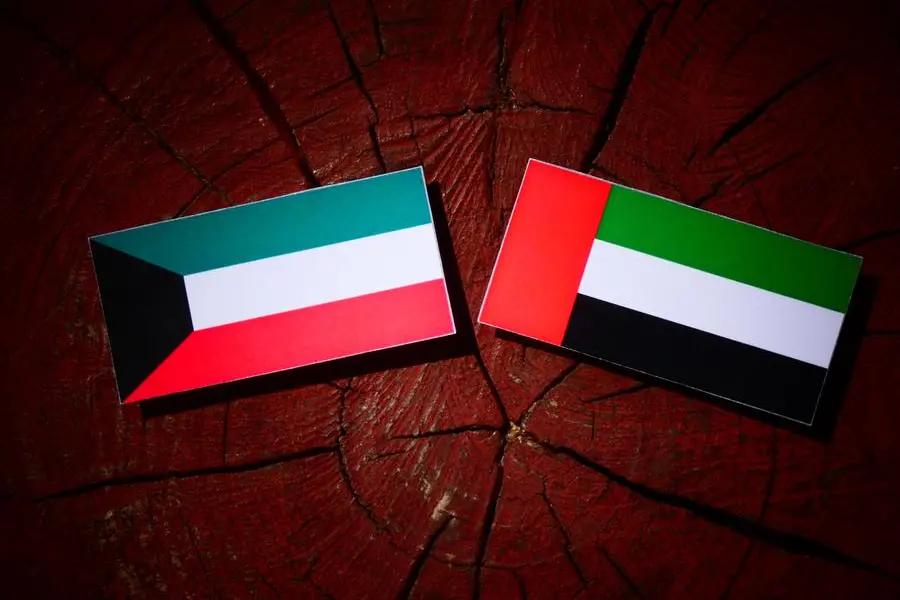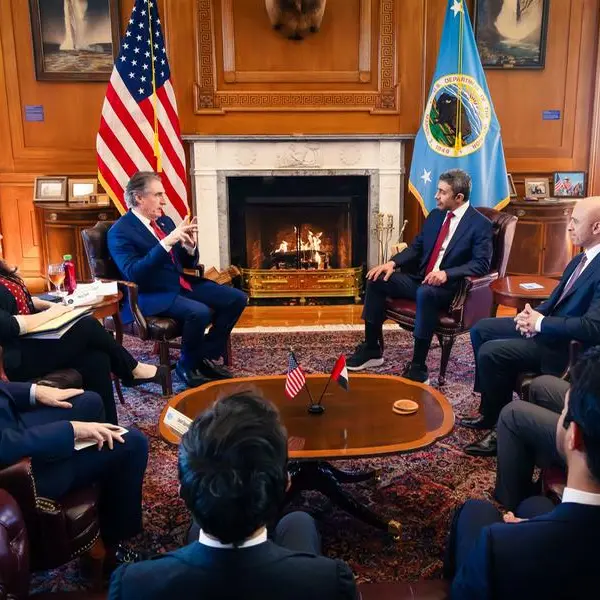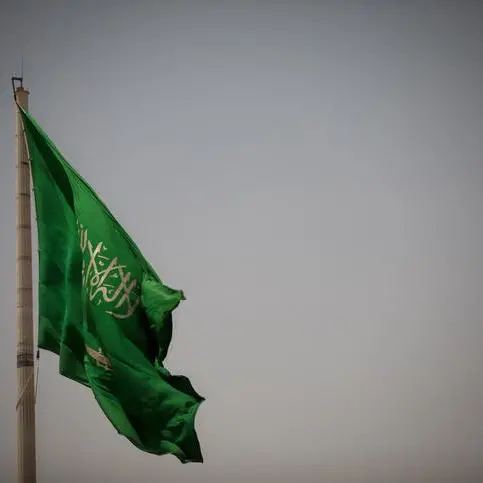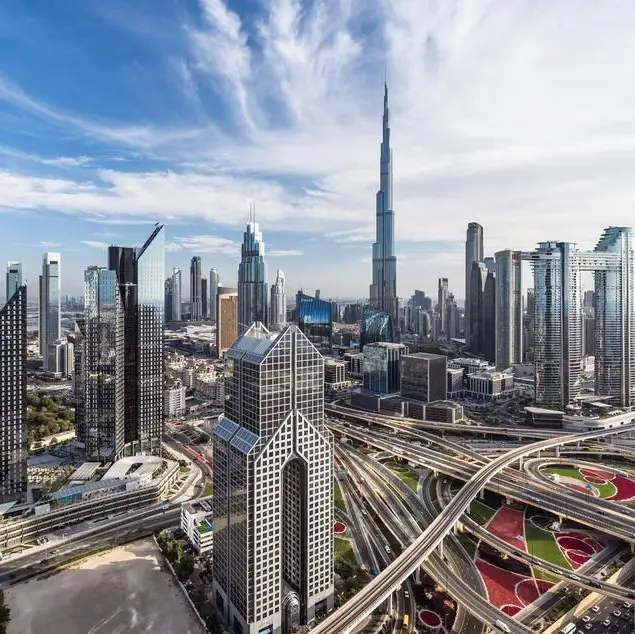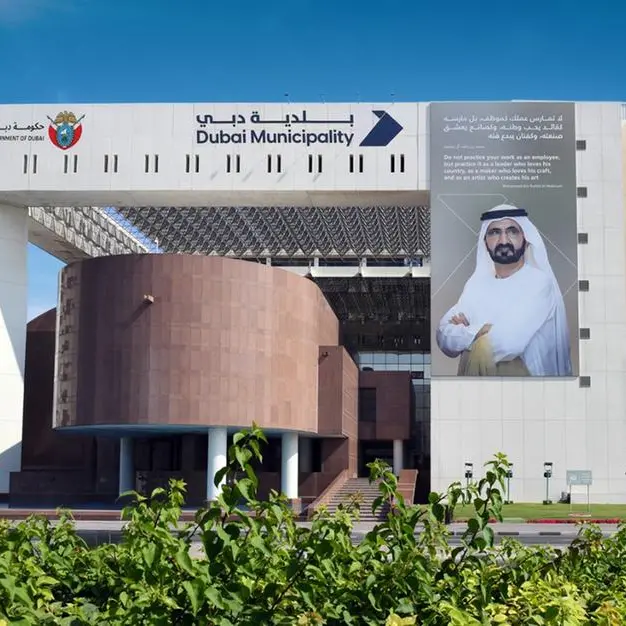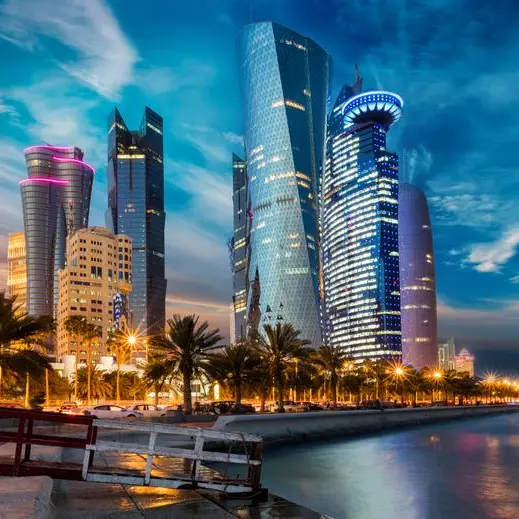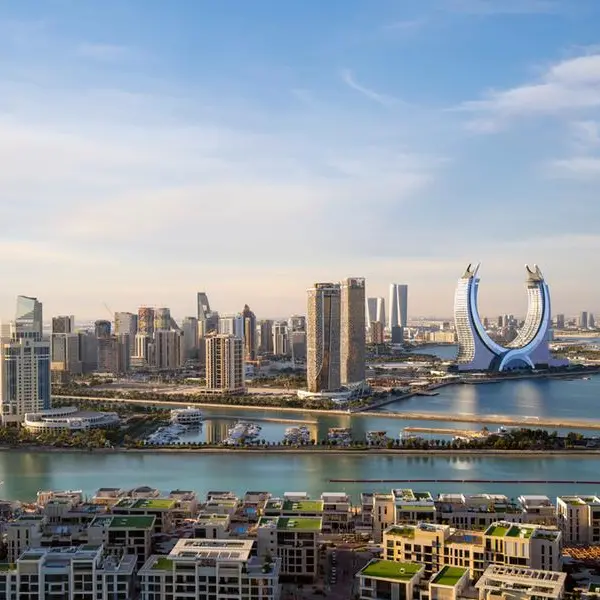PHOTO
KUWAIT -- The Vice President, Deputy Prime Minister and Chief of Presidential Court of the United Arab Emirates, Sheikh Mansour bin Zayed Al-Nahyan is set to arrive in Kuwait, Tuesday, on an official visit aimed at strengthening the Kuwaiti-Emirati relations and discussing topics of mutual interests.
For over 60 years, Kuwait and the UAE have maintained a strong partnership built on strategic cooperation and deep integration.
The Kuwaiti-Emirati relations are characterized by shared goals, a unified approach to regional and global challenges, and the mutual commitment of both countries' leadership to strengthen bilateral ties, expand cooperation, and develop strategic partnerships across political, economic, and social sectors to support national interests and regional stability.
Over the years, Kuwait and the UAE have signed numerous agreements and memoranda of understanding (MoUs) aimed at strengthening comprehensive strategic partnerships and advancing bilateral relations to broader horizons.
These MoUs cover a wide array of fields, particularly in political, economic, and social domains, reflecting a shared vision of long-term development and mutual trust.
In 2024 alone, reciprocal visits by the leaderships of both countries have further cemented this relationship and introduced new dimensions to the strategic partnership, resulting in a series of MoUs and agreements across various sectors.
A notable milestone in this partnership was the state visit of His Highness the Amir of Kuwait, Sheikh Meshal Al-Ahmad Al-Jaber Al-Sabah, to the UAE on March 5, 2024, during which he held talks with UAE President Sheikh Mohammad bin Zayed Al-Nahyan focusing on bilateral relations and avenues for development across multiple sectors.
Following this visit, a joint statement was issued, lauding the close cooperation between the two nations in multiple fields such as politics, diplomatic affairs, economy, trade, finance, investment, the private sector, energy, cybersecurity, communications, and technology, among other areas.
The statement also highlighted the growth in bilateral trade and investment, noting that non-oil trade between the two countries reached approximately USD 2.12 billion in 2023, marking a two percent increase from 2022.
Both sides underscored the importance of expanding economic cooperation and partnerships, leveraging available opportunities, and exploring new economic prospects in line with Kuwait Vision 2035 and the UAE's "We the UAE 2031" Vision.
Regarding defense and security, the two countries affirmed their commitment to enhancing defense cooperation and developing strategic partnerships to safeguard the security and stability of both nations and the region.
They also pledged to strengthen collaboration in combating all forms of crime, counterterrorism, and border security, while commending the robust levels of existing security and intelligence cooperation.
The joint statement also welcomed the expansion of Emirati and Kuwaiti investors' and companies' operations in both countries and encouraged them to seize opportunities across key sectors.
The state visit of the UAE President to Kuwait in November 2024 further bolstered the steadfast ties between the two countries, underscoring their shared determination to enhance cooperation across all fields.
Regarding the political and diplomatic spheres, both leaderships share common views on several regional and global issues, including the urgent need to intensify efforts to reach a comprehensive and just settlement to the Palestinian cause based on the two-state solution, ensuring the Palestinian people's right to establish an independent state with East Jerusalem as its capital.
Regarding regional crises, both sides reiterated their support for security and stability in the region, emphasizing the importance of dialogue and diplomatic solutions to resolve disputes, fostering communication, building bridges of partnership and cooperation, and promoting solidarity, tolerance, peaceful coexistence, and the sustainability of growth, stability, and global peace for current and future generations in the region.
Formal cooperation between Kuwait and the UAE began in 1972 with the opening of their respective embassies in Abu Dhabi and Kuwait, and since then, the two countries have signed numerous agreements, MoUs, and executive programs to support development in both nations.
The fifth session of the Joint Supreme Committee between the two countries, held in Abu Dhabi on September 2, 2024, marked a major milestone with the signing of agreements and MoUs covering cybersecurity, infrastructure, telecommunications, defense industries, education (2024-27), sports (2024-26), and cultural cooperation (2024-26).
Environmental cooperation also saw significant progress, with the signing of an MoU in November 2021 between the Kuwaiti Environment Public Authority and Emirati authorities to enhance biodiversity cooperation, exchange expertise, and implement joint projects in agriculture, fisheries, and environmental agreements.
Regarding traffic and traffic violations, a project to integrate traffic systems between the two countries was launched in February 2023, laying the groundwork for broader cooperation in traffic and security services across the GCC countries.
Further developments included the inauguration in April 2023 of the first direct shipping line for container vessels between Abu Dhabi's Khalifa Port and Kuwait's Shuwaikh Port, boosting trade and logistics ties.
In February 2024, the two nations signed an agreement to avoid double taxation on income and capital, alongside a cultural cooperation MoU signed in March 2024 between Kuwait's Cultural Office in Dubai and Gulf Medical University in Ajman to allocate medical scholarship seats.
In June 2024, the civil aviation authorities of both countries signed an MoU to deploy air marshals on civilian flights, enhancing aviation security and passenger safety.
In August 2024, Kuwait's Ministry of Public Works signed an MoU with the Fujairah Natural Resources Corporation in the UAE to supply steel, the aim is to enable the Ministry of Public Works to benefit from Fujairah's expertise.
The UAE is Kuwait's second-largest global trading partner after China, the leading Arab and Gulf partner, and the top global destination for Kuwaiti non-oil exports, accounting for 22 percent of Kuwait's non-oil exports worldwide.
The UAE is also Kuwait's third-largest source of imports, the investment ties are equally robust, with the UAE ranking the third-largest foreign investor in Kuwait, accounting for six percent of total foreign direct investment by the end of 2022.
Kuwait also remembers the UAE's official and public support during the Iraqi invasion in August 1990, when the UAE hosted tens of thousands of Kuwaiti families and contributed its armed forces to Kuwait's liberation.
The history of mutual support dates back further. Kuwait's late Amir Sheikh Abdullah Al-Salem Al-Sabah visited Sharjah in 1952 and directed the dispatch of an educational mission to the UAE in 1955, which established and opened schools, provided books and supplies, and initiated medical missions in 1962.
Kuwait also financed and supervised these services and established a television broadcast station in Dubai in 1969, known as "Kuwait TV from Dubai." A significant step forward in the partnership came with the signing of the Joint Cooperation Committee agreement in Kuwait on April 24, 2006, followed by the first committee meeting in Abu Dhabi in March 2008, and subsequent sessions continued to deepen ties through various agreements and MoUs.
The strong and enduring partnership between Kuwait and the UAE continues to thrive, driven by the wisdom and vision of their leaderships, serving the mutual interests of both nations and contributing to security, stability, development, and prosperity.
All KUNA right are reserved © 2022. Provided by SyndiGate Media Inc. (Syndigate.info).
